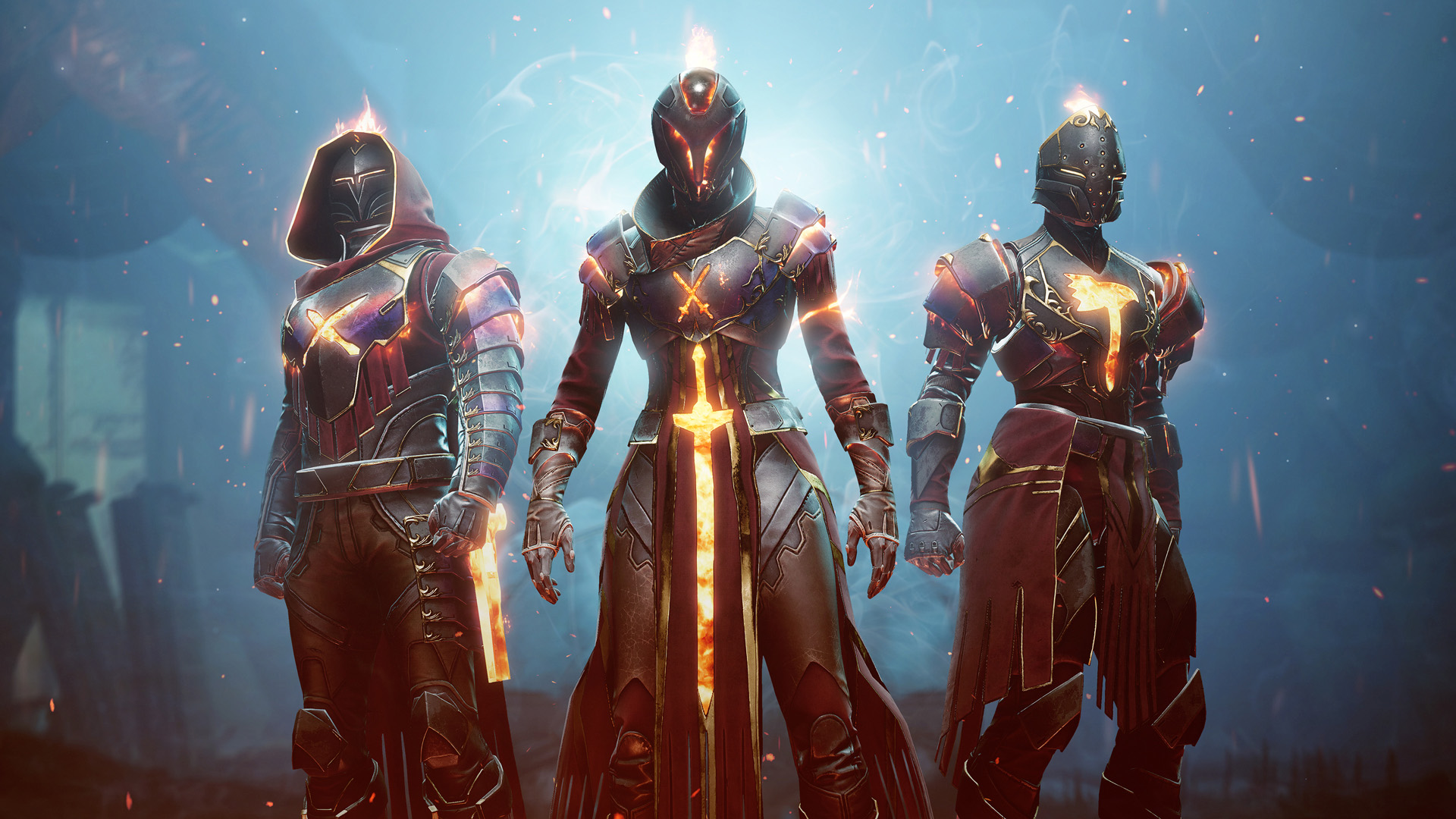Bungie levels multimillion lawsuit against cheating pest who threatened developers to 'keep your doors locked'
The cheater created multiple accounts, including 'Bungie' and 'Bungiemad', while flogging dodgy software.

Bungie's general counsel certainly keeps busy, and recent years has seen the studio take an increasingly aggressive approach towards would-be cheaters, hackers, and malicious jerks. It's perhaps no surprise that a studio which is one of the pioneers of a truly live service approach to game development should also take point on dealing with some of the inevitable problems around bad actors, and this particular target is a doozy.
A lawsuit filed in Seattle district court sees Bungie taking aim at an individual who the Destiny 2 developer alleges created multiple accounts to evade bans, livestreamed themselves cheating, and threatened the developers' employees.
The suit alleges that the player streamed on the Twitch channel "miffysworld". On December 6, 2021, "miffy" created a Destiny 2 account with the display name "!", which would be banned on May 22, 2022 after they used cheating software on stream. But miffy, also known as "inkcel," had come prepared and had preemptively created a second account called "GOT 2 GET IT".
The suit then details a chain of events that saw miffy create new accounts as quickly as Bungie could ban them: the studio was clearly following the player's actions closely. The names of these accounts included "TRAP$TAR MIFFY", "ugl1kgwj4kn7emj," "why," and "gerogetwo." One of the sequences of names provides insight into miffy's mindset at the time: "Bungie" was banned, and replaced by "bungiemad," which was banned, and replaced by "hahahalolxd," which was banned.
There are various other accounts, and the suit claims miffy created others which Bungie did not identify and ban. The suit in fact details how miffy boasted about Bungie not being smart enough to stop them: "my point is more bungie will NEVER be able to stop me if i persisted in my actions." The bragging from miffy's accounts was public and often included Bungie accounts, such as a tweet reading: "7 bans in and still going strong @Bungie battleye is shit took me 30 seconds to get around your silly hardware ban."
Then the suit moves on to more serious allegations, claiming that that on May 18, 2022, miffy tweeted an image of Bungie community manager Dylan Gafner's employee badge, alongside the hashtag #NewProfilePic. In the replies to this tweet miffy writes, "i just realized i'll be moving to a place that's 30 minutes away from dmg [Gafner's initials]," before following up that tweet with one saying "he is not safe."

Miffy tweeted about Gafner on other occasions, and the suit also alleges that they suggested they would commit arson on Bungie HQ, and told the studio: "KEEP YOUR DOORS LOCKED." Miffy also posted a composite image of Bungie community managers and, as the suit makes clear, the concerning part is that by this point they had said they'd moved to Washington State (Bungie HQ is in Seattle).
The biggest gaming news, reviews and hardware deals
Keep up to date with the most important stories and the best deals, as picked by the PC Gamer team.
Finally, the suit goes on to detail how miffy sold accounts and in-game emblems on a well-known online marketplace for such things, quoting their adverts and sales pitches. It then describes how Bungie caught them. Much of it is IP tracking and what seems to be miffy's occasional forgetfulness about covering tracks, but our mastermind made several other errors, including using an email address associated with the fraudulent activity while ordering some Bungie merch to their name and home address.
The suit summarises its identification of the player, whose real name we have redacted, thusly:
- The email account is associated with [the player's] Destiny 2 activity, his OGUsers activity with fraudulent emblem and clan name sales, and his full name and his physical address;
- All of [the player's] Destiny 2 accounts can be associated with one another, and with [their real identity];
- [The player's] Inkcel Twitter Account hosts his harassing threats, his fraudulent emblem sales activity, and evidence of his cheating from his known Destiny 2 accounts;
- The Telegram account is associated with both [the player's] fraudulent emblem and clan name sales activity at OGUsers and his real name.
Having made what looks like a comprehensive case against miffy, Bungie's lawyers then prepare the big guns. The studio is really going after this player: cheating is one thing, however unwanted, but threatening Bungie staff is a whole other level of seriousness.
Bungie asks for a jury trial for the case. The studio wants damages of $150,000 for each count of copyright infringement, which in my reading of suit relates to miffy's various accounts violating the user agreement: which would make that 13 counts, or $1.95 million. On top of that it asks for a laundry list of damages including punitive damages, pre-judgement and post-judgment interest on all damages awarded, and of course for miffy to be landed with its costs and attorneys’ fees.
As well as the money, Bungie wants miffy to be "preliminarily and permanently enjoined from harassing, stalking, or otherwise engaging in unwanted or unsolicited contact with Bungie, its employees, or Destiny 2 players."
There are undoubtedly elements of fandom that don't know where the line is and frequently overstep it, and it's notable that this suit is happening at a time where developers are so often faced with harassment and threats from players of their games. What is clear from this suit, for example, is that miffy has an unhealthy interest in Bungie and its games: They're doing this stuff while also buying Bungie merch.
We'll keep an eye on the case and report on any further developments. A Sony studio going after an individual is never going to look especially edifying but, in some cases, the individuals do seem to have brought it on themselves.
Update: After this article was published, the defendant was identified as a minor, and the court sealed documents containing their full name. We have also chosen to remove the defendant's name, replacing it with aliases they used.

Rich is a games journalist with 15 years' experience, beginning his career on Edge magazine before working for a wide range of outlets, including Ars Technica, Eurogamer, GamesRadar+, Gamespot, the Guardian, IGN, the New Statesman, Polygon, and Vice. He was the editor of Kotaku UK, the UK arm of Kotaku, for three years before joining PC Gamer. He is the author of a Brief History of Video Games, a full history of the medium, which the Midwest Book Review described as "[a] must-read for serious minded game historians and curious video game connoisseurs alike."

